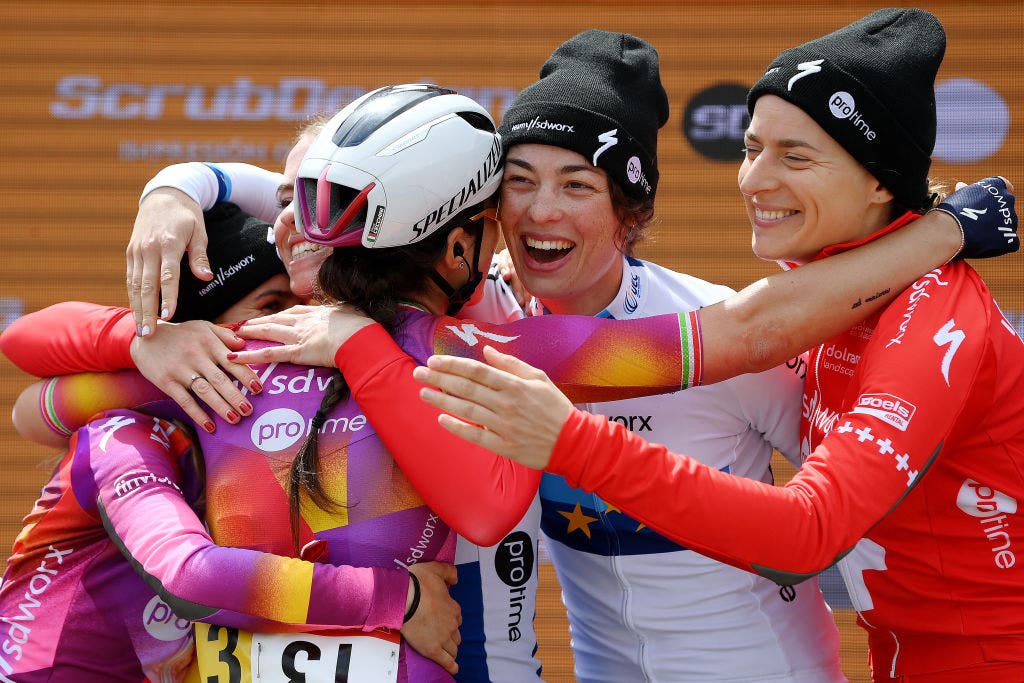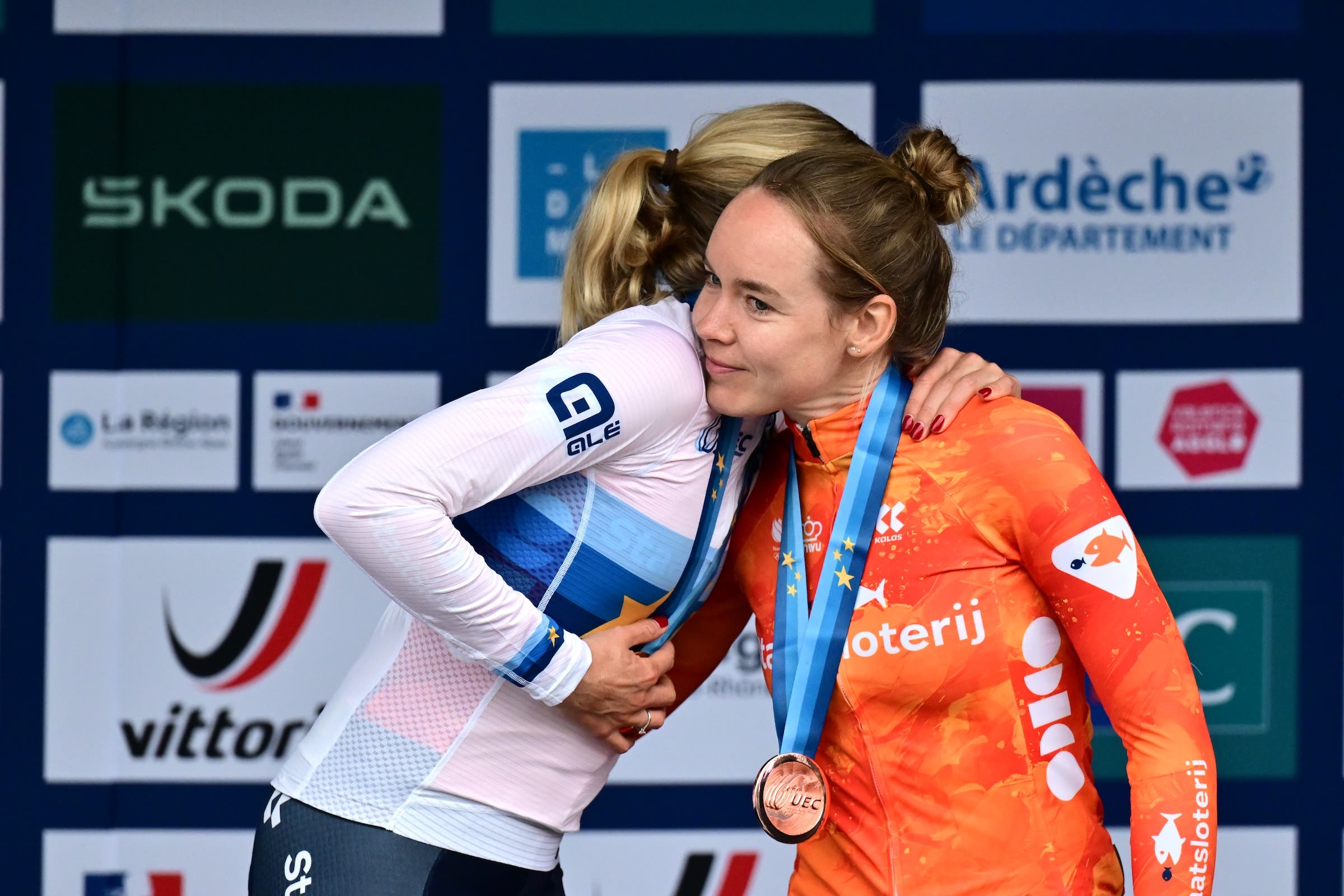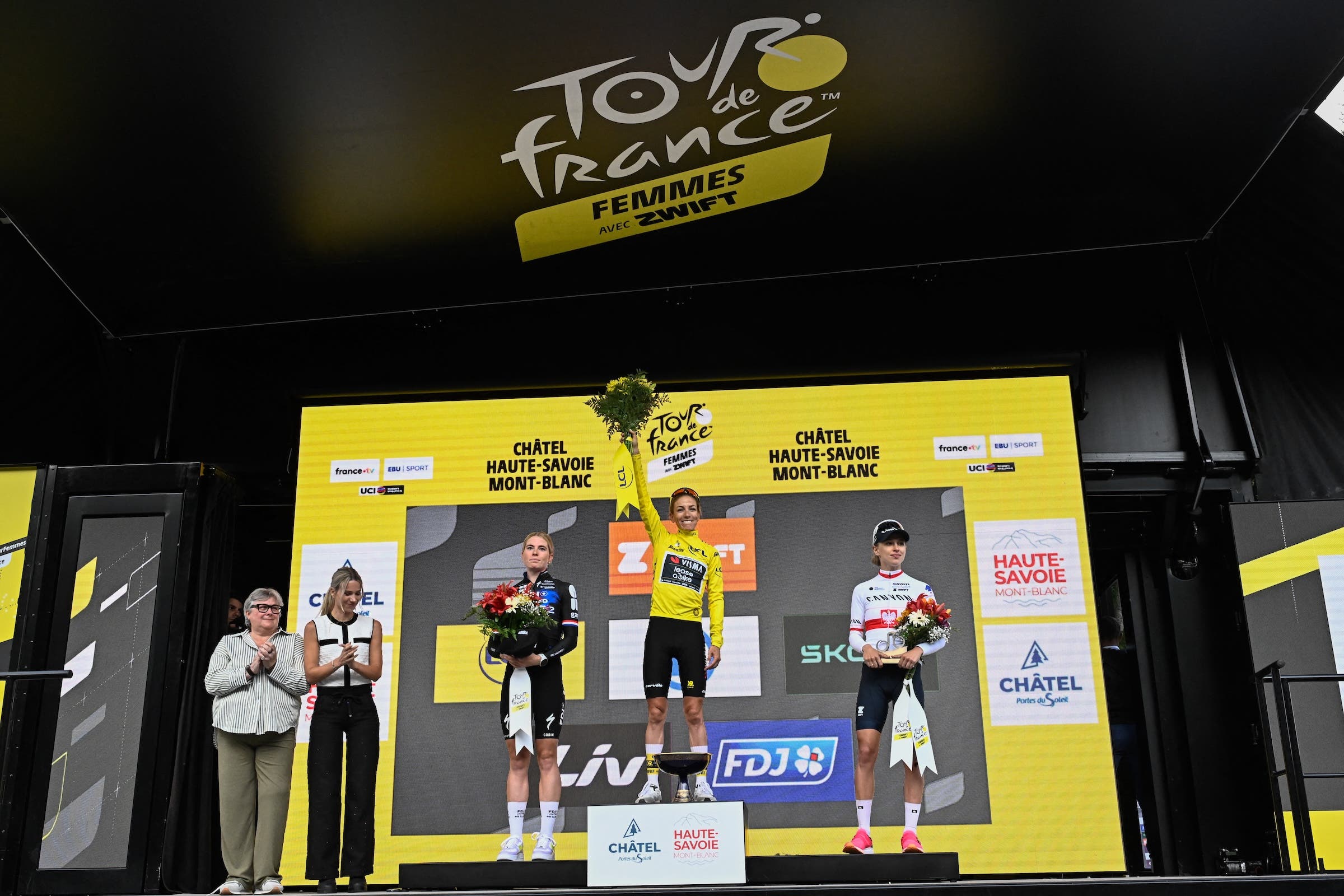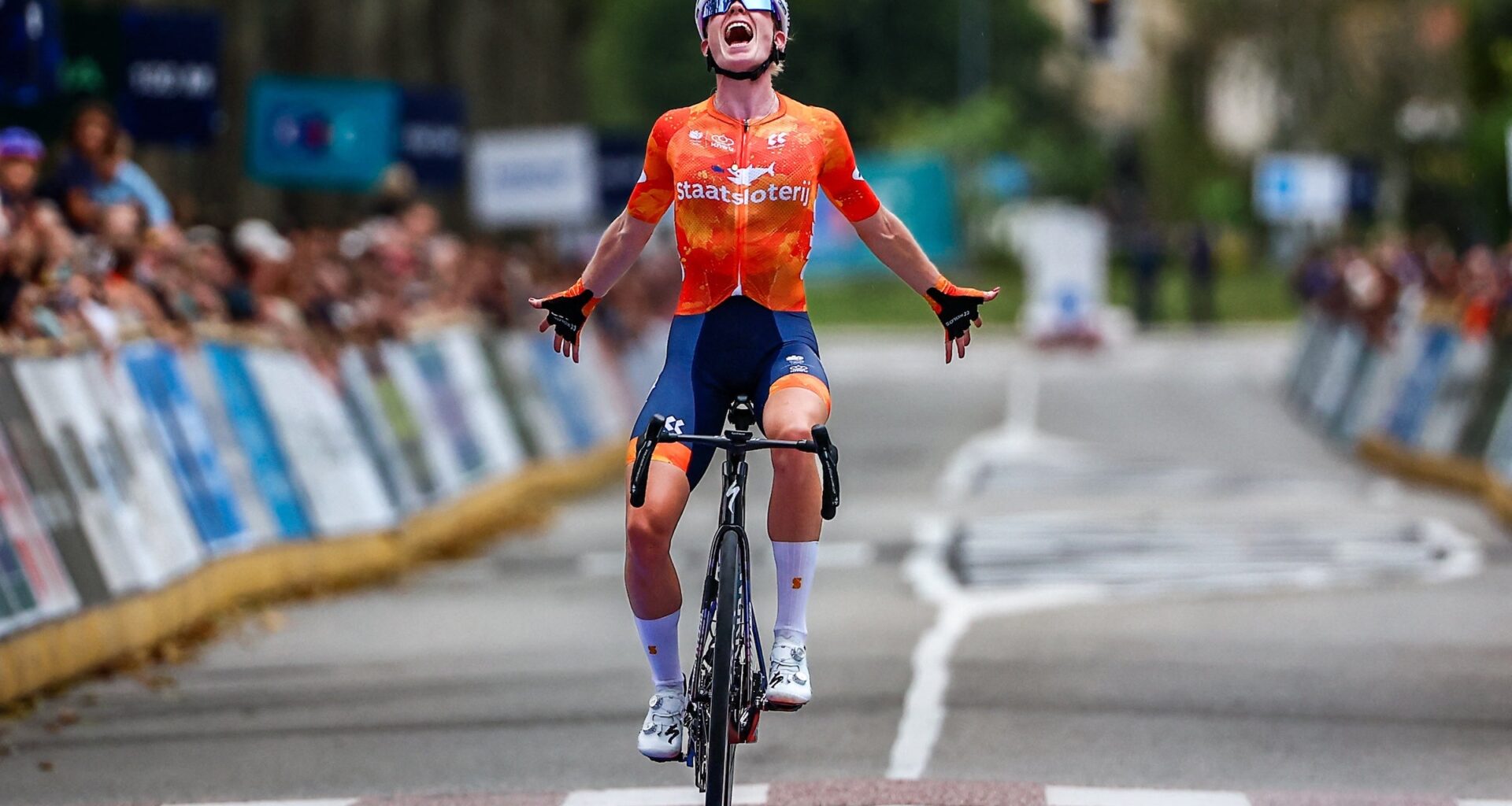Updated October 26, 2025 03:24PM
Demi Vollering has found herself at the center of a media frenzy from time to time during her career, with various comments going viral and leading to a lot of attention.
That happened last winter when she left the SD Worx Protime team, voicing what appeared to be disillusionment with that squad. She was in the headlines again after this year’s Tour, when controversy about winner Pauline Ferrand-Prévot’s weight made news.
The Dutchwoman has given a frank interview with de Volkskrant, saying that her comments have been often misinterpreted, but also saying she won’t bite her tongue when she has something to say.
“For me, it’s often not a question of whether I should speak out about something or not,” she said.
“If I don’t, I think I lose more energy on it because I then spend all the time thinking about it. I’d rather just say it out loud.
“I now know that every time I open my mouth, there will be commentary. That’s just how it is.”
‘Wow, weren’t we friends?’
 Vollering (second from left) was previously part of the SD Worx-Protime squad (Photo: Alex Broadway/Getty Images)
Vollering (second from left) was previously part of the SD Worx-Protime squad (Photo: Alex Broadway/Getty Images)
Vollering was part of the SD Worx-Protime team for four years, winning the 2023 Tour de France Femmes avec Zwift in its colors and also taking many other races.
She looked on course to win last year’s Tour but crashed heavily on stage 5. Her-then teammate Lorena Wiebes accidentally brought her down, with Vollering left lying on the road in the maillot jaune and then receiving minimal team support in the chase.
She dropped to ninth overall and while she put in a huge ride to win the final stage and to make serious inroads into the race lead of Kasia Niewiadoma, she ended up an agonizing four seconds short.
Vollering played down the lack of support until the end of the season, but eventually aired her frustration with how management had treated her at times.
Speaking to NRC.nl last November, she said that directeur sportif Danny Stam told media the previous March that she would be leaving the team when that departure had not been confirmed.
“It was like a slap in my face,” she said then. “I had not made a decision and I still hoped that the team would make changes.”
Last winter coincided with a breakdown in relations with her former team, something she sees as symptomatic of an issue with pro sports.
“There are many people and relationships that over time turn out to be fake,” she said.
“I am someone who quickly likes others, so that is quite difficult for me. Last winter I changed teams, and with that, teammates. There were moments when I thought: wow, weren’t we friends? Apparently not anymore. That was quite intense.
“When I get on my bike, I participate in that intensity. Then I am a killer and want to win. Off the bike, it’s different.
“Sometimes I don’t exactly know what to expect from someone.”
‘Young people struggle’
 Vollering hugs former teammate Anna Van Der Breggen after the European road championships in France on October 04. (Photo: Billy Ceusters/Getty Images)
Vollering hugs former teammate Anna Van Der Breggen after the European road championships in France on October 04. (Photo: Billy Ceusters/Getty Images)
Vollering appears to be a deeper thinker than many within the peloton. In January she opened up about the turmoil and anxiety she felt during the 2024 Tour.
Writing in a social media post, she also talked about mental health and the need to confide in others.
She gave an example of how her-then teammate Mischa Bredewold helped her deal with what she was feeling.
That in turn taught Vollering an important lesson.
“I realized how important it is to talk about what we’re going through,” she wrote. “Anxiety can make you feel stuck and isolated, but sharing your feelings — even when it’s hard — can be the first step toward relief.”
She returned to the topic of mental health again after winning stage five of this year’s Vuelta España Femenina.
“The last days were a little bit more difficult. Someone close to me goes through a really hard time mentally,” she said then. “I see that too much around me young people struggle. So today I did everything I could because mentally I know I am very, very strong.
“Because of my mentality I can win beautiful races. But some people, their brain is a bit too strong in the wrong direction and they struggle and suffer so much with their mental health. And it is still such an unknown problem in this world.
“So today my win was a sacrifice for all the people who have a really hard time mentally.”
Vollering is frank and more open than many athletes. That’s often a good thing, shining a light on mental health and other topics. But being outspoken has also left her vulnerable to misinterpretation and sometimes criticism.
She could clam up to avoid that, but insists she won’t resort to that.
Instead she said that she’ll talk about whatever is on her mind, but not necessarily revist that topic.
“I’m not going to become quieter, but I don’t want to give a hundred more interviews on the same subject just because I’ve already spoken out about one thing,” she said.
‘My comments were taken out of context’
 Vollering (l) on the podium with Tour de France Femmes winner Pauline Ferrand-Prévot and Kasia Niewiadoma at the end of that race (Photo: Julien De Rosa / AFP)
Vollering (l) on the podium with Tour de France Femmes winner Pauline Ferrand-Prévot and Kasia Niewiadoma at the end of that race (Photo: Julien De Rosa / AFP)
There is a recent example of how Vollering’s frankness can lead to what she feels are sensationalist misinterpretations.
Following Ferrand-Prévot’s Tour win, it emerged that the Frenchwoman had lost four kilograms for the race.
Vollering wrote an extensive social media post about the topic, insisting that she personally would not go down the same route.
“Losing weight is not the ultimate solution,” she wrote. “For me, performance is about far more than that. It’s about strength. Balance. Fueling well. Feeling mentally strong. And recovering faster than everyone else.”
She warned that obsession over weight can create health problems, especially for young cyclists.
“I make, and will continue to make, every decision in my career by putting my health first. Always,” she wrote.
“The truth is: I’m not built to be the lightest rider in the peloton,” she posted. “And I don’t want to force my body to become something it’s not. I’m already racing at the highest level with a strong, lean, capable body.”
Several months later she now says that some media inaccurately interpreted those comments as being a criticism of the Tour winner.
“It was again an eye-opener to see how my comments were then taken out of context, how clickbait was made out of them,” she told de Volkskrant.
“I was really annoyed by that; it turned into something negative about Pauline, and I thought that was unfair.
“She didn’t win the Tour only because she was lighter in weight, but also because she had prepared well. People thought I didn’t wish her success, but that wasn’t the case at all.”

